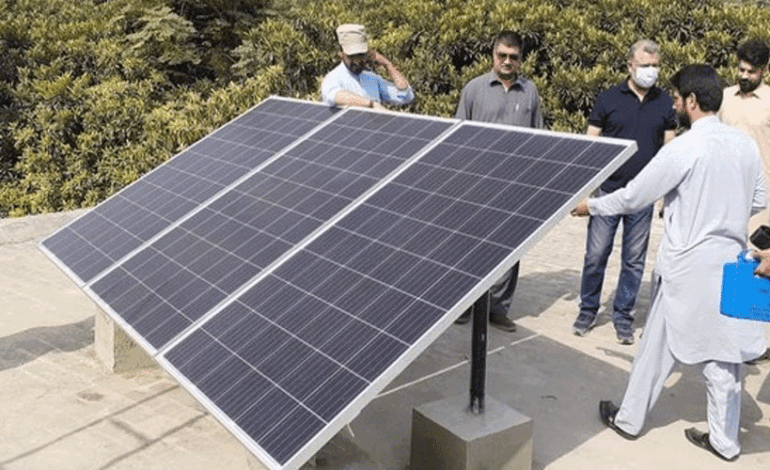
Govt Imposes 18% Sales Tax on Imported Solar Panels to Boost Local Industry
ISLAMABAD – In a significant policy shift aimed at promoting domestic manufacturing, the federal government has proposed an 18% sales tax on imported solar panels in the 2025-26 budget, a move designed to level the playing field between imported and locally produced solar energy equipment.
According to official budget documents, the government intends to support Pakistan’s growing renewable energy sector by encouraging local production of solar panels and related components.
“The goal is to create a fair competitive environment that allows domestic manufacturers to thrive against cheap imports,” officials said.
Government representatives highlighted that Pakistan’s small and medium-sized solar panel producers have been struggling to survive due to low-cost imports flooding the market, particularly from countries with large-scale manufacturing capabilities.
Policy Aims to Reduce Import Dependence and Create Jobs
The newly proposed tax is part of a broader industrial policy initiative aimed at:
- Encouraging local production of renewable energy equipment
- Creating employment opportunities across the solar manufacturing value chain
- Reducing the country’s reliance on imports in the energy sector
- Supporting the sustainability of Pakistan’s clean energy transition
Officials also noted that without protection and incentives, the local solar panel industry may face long-term decline, despite having the potential to meet domestic demand and export to regional markets.
Industry Reaction and Concerns
While the move is expected to benefit local manufacturers, some industry experts and clean energy advocates have raised concerns that the tax could increase upfront costs for consumers and slow down solar adoption, particularly in residential and agricultural sectors.
They emphasize the need for a balanced approach, such as subsidies or tax breaks for buyers of locally manufactured panels, to ensure that solar energy remains accessible and cost-effective while supporting domestic production.






